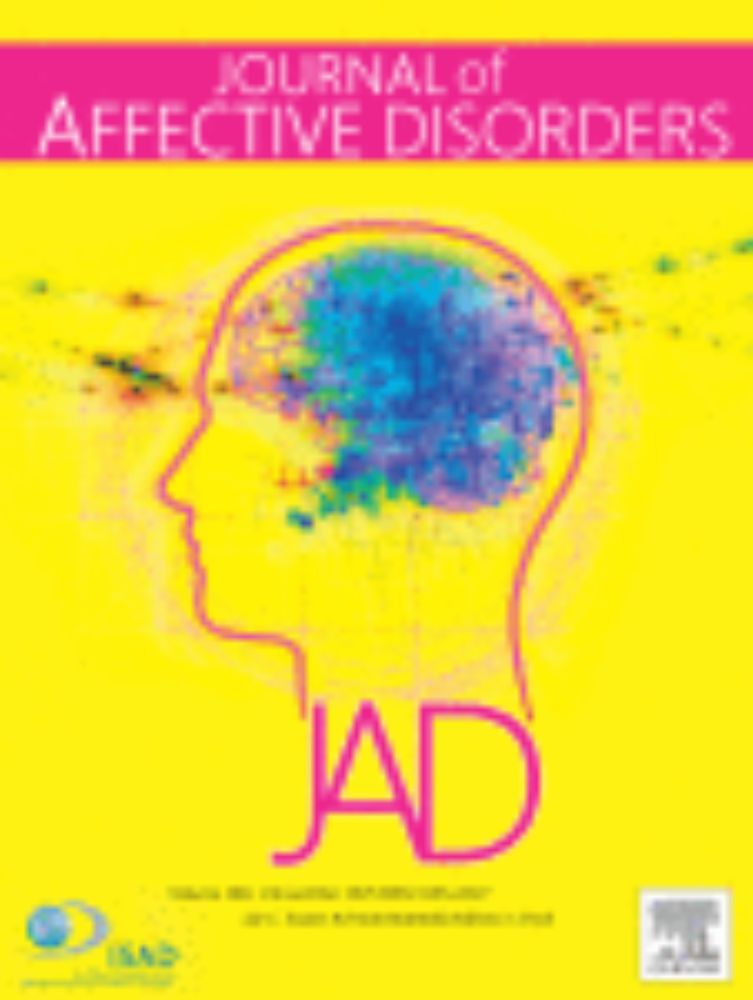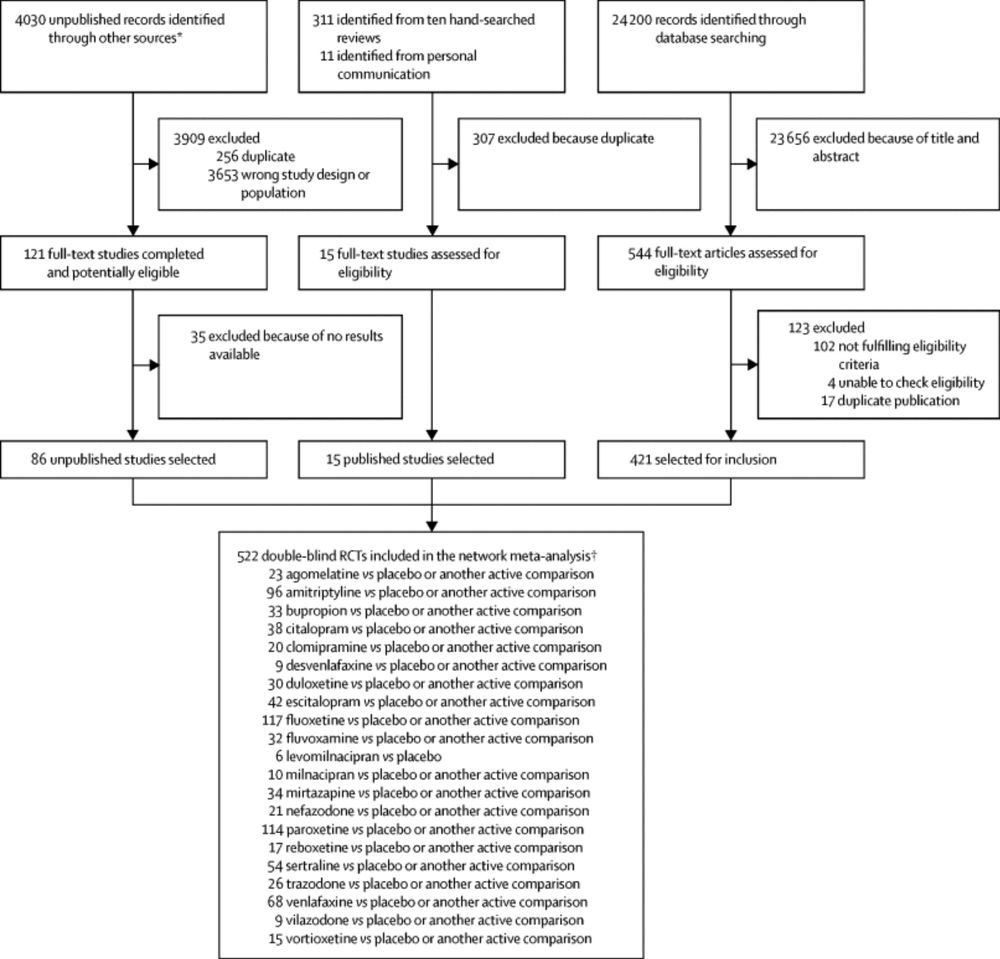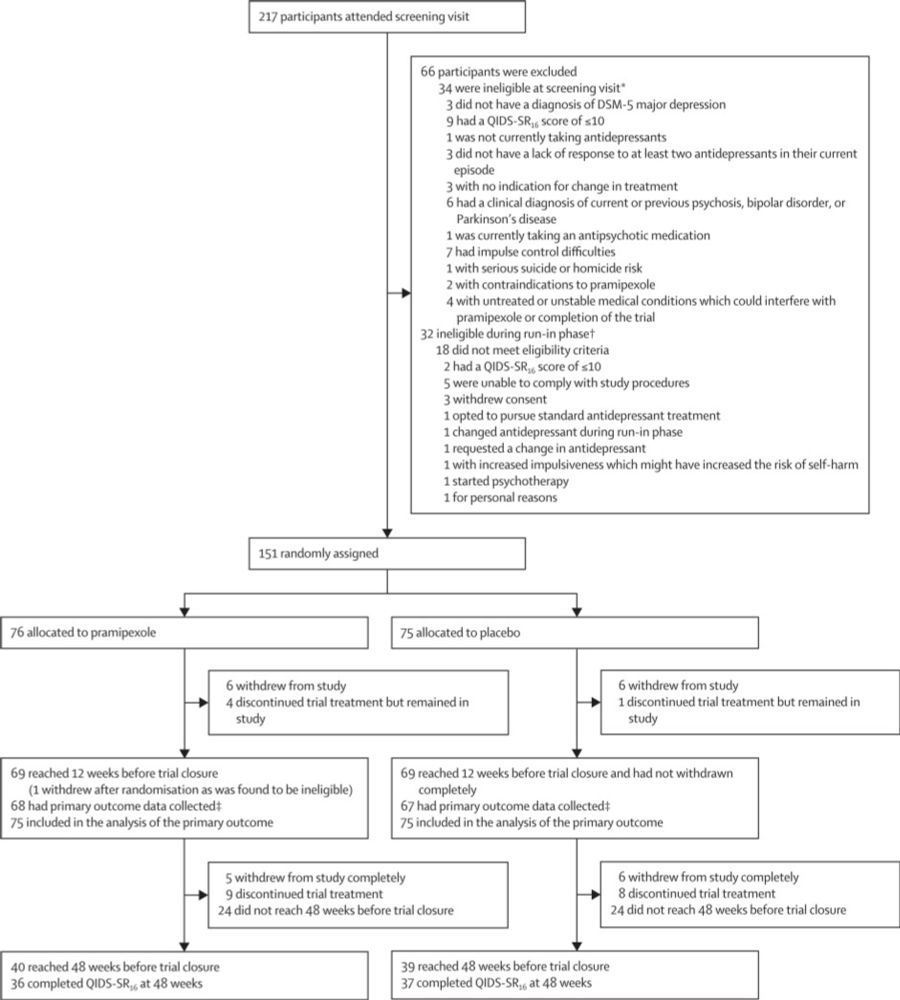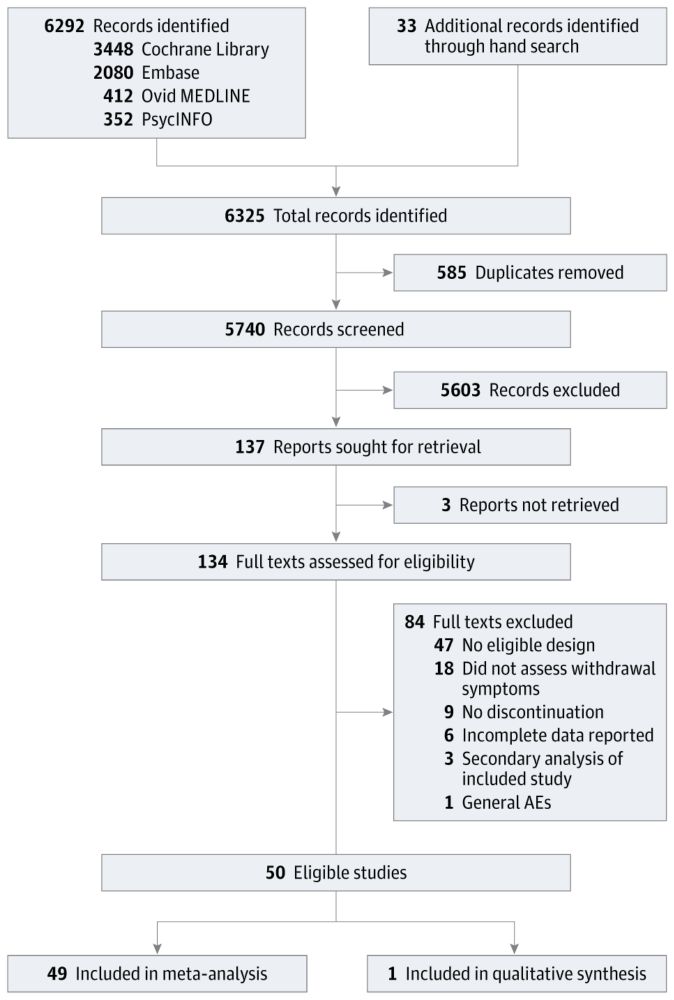
Incidence and Nature of Antidepressant Discontinuation Symptoms
This systematic review and meta-analysis examines the presence and incidence of discontinuation symptoms in individuals who stop taking antidepressants.
V important meta-analysis doi.org/10.1001/jama...: Discontinuation symptoms 1 week post stopping antidepressants was below the threshold for clinically significant discontinuation syndrome. Later worse mood is likely depression relapse @jfhayes.bsky.social @sameerjauhar.bsky.social.
09.07.2025 22:54 — 👍 11 🔁 5 💬 0 📌 0
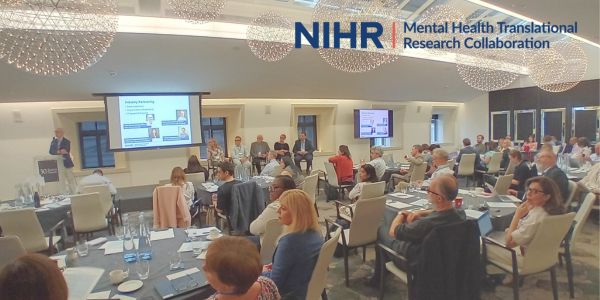
🎊Recently, colleagues from across the @NIHRresearch Mental Health Translational Research Collaboration (MH-TRC) gathered for a celebration of progress and partnership in mental health research.
➡️ oxfordhealthbrc.nihr.ac.uk/nihr-mental-...
04.07.2025 08:53 — 👍 4 🔁 2 💬 1 📌 0
Thanks Rick
30.06.2025 07:44 — 👍 0 🔁 0 💬 0 📌 0
GRATEFUL to @nihr.bsky.social for funding this work and @oxhealthbrc.bsky.social for support.
Pramipexole is clearly not a first line treatment for depression, but these results demonstrate that it can be a useful option for our most treatment-resistant patients! 6/6
30.06.2025 03:54 — 👍 2 🔁 0 💬 0 📌 0
TRANSPARENCY: There are challenges to using pramipexole: 20% stopped pramipexole due to side effects vs 5% placebo. Most common: nausea, headache, dizziness, sleep problems. 5/6
30.06.2025 03:54 — 👍 2 🔁 0 💬 2 📌 0
HYPOTHESIS: We targeted dopamine D2/3 receptors with pramipexole instead of the usual serotonergic approach. Dopamine is crucial for reward/pleasure - and anhedonia (can't feel pleasure) is often what persists even after other depression symptoms improve. 4/6
30.06.2025 03:54 — 👍 1 🔁 0 💬 1 📌 0
Background: About 30% of our patients don't respond to first-line antidepressants. We recruited people with chronic depression (median 8.5 years) who had tried 3-4 medications without success. These are the patients we struggle to help most. 3/6
30.06.2025 03:54 — 👍 0 🔁 0 💬 1 📌 0
FINDINGS: In our randomized controlled trial (n=150), patients receiving pramipexole showed:
• 6.4-point reduction in QIDS scores vs 2.4 for placebo (p<0.0001)
• 44% response rate vs 16% placebo
• 28% remission vs 8% placebo Effect size d=0.87 - this is substantial! 2/6
30.06.2025 03:54 — 👍 0 🔁 0 💬 1 📌 0

Current vacancies
Delighted to announce this position www.northlondonmentalhealth.nhs.uk/current-vaca.... It's part of the Mental Health Mission Mood Disorders Research Clinic Network, aiming to support clinical trials in mood disorders in the UK. Should be very interesting! oxfordhealthbrc.nihr.ac.uk/mhm/mood-dis...
24.06.2025 20:59 — 👍 3 🔁 2 💬 0 📌 0
RELMED.ac.uk is now open to recruitment. This @wellcometrust.bsky.social-funded study wellcome.org/research-fun... will ask whether reinforcement learning tasks are differentially sensitive to dopaminergic and serotonergic antidepressants.
02.06.2025 21:11 — 👍 13 🔁 9 💬 1 📌 0
It's love Rick.
13.03.2025 18:41 — 👍 2 🔁 0 💬 0 📌 0
PhD candidate in cognitive neuroscience @Yale // @NSFGRFP // Brown '20
IZTECH-Chemistry, I like to be Polymath(learning different subjects), Polygot(interested in the learning different languages) comments and opinions are my own RT≠ is not endorsement (he/him)
Neural Mechanisms of Stress Vulnerability & Resilience 🧠 | Incoming Assistant Professor @Haifa University 👨🏫 | Postdoctoral Fellow @Yale University 🎓
Scot abroad and post-doc at KCL in computational psychiatry. Interested in natural and artificial thinking and learning
https://ingrdmrtn.github.io/
Economic historian @UoGuelph w broad social science & historical interests: population health, First Nations demography, mobility, inequality & lives of the incarcerated 🇨🇦🇦🇺🇳🇿🏴
Editing Asia-Pacific Econ History Rev & directing https://thecanadianpeoples.com.
Computational cognitive scientist
Assoc Professor at Hebrew University
sites.google.com/site/eldareran
PhD student researching how repetitive negative thought influences decision-making using online samples, neuroimaging & ultrasound neuromodulation
@ BRIC, University of Plymouth
Clinical Psychologist, #DClinPsy Lecturer, NIHR Doctoral Fellow
Has lived experience
Interests: psychosis, coproduction, health inequalities
Personal page: my views.
🧠 Cognitive neuroscience postdoc, Cambridge Uni | Computational modelling, neuroimaging, visual perception, mental health & neurodiversity | Likes 🐈⬛🐈, horror films, spicy food, 90s rock
Website: naziajassim.github.io
PhD student with the Prediction and Learning Lab, Cambridge. Working on uncertainty, attention, learning, and possibly anxiety.
Computational Cognitive Neuroscientist at CiNet & Osaka University. Category learning to concepts & everything between (semantic/episodic memory). Cognitive aging/damage in models & brains. To understand the brain & AI.
NIHR Academic Clinical Lecturer in General Adult Psychiatry at the University of Southampton
Placebo Effects | Affective and Anxiety Disorders
nathanhuneke.netlify.app
Lecturer/Asst Prof @qmul.ac.uk. Research on ADHD/Neurodiversity & Youth Mental Health using transdiagnostic, longitudinal, neurocognitive & participatory approaches. Leads TREND Lab. Academic mama
https://www.seresearch.qmul.ac.uk/cbb/people/gmichelini/
MD/PhD student at University of Pittsburgh/Carnegie Mellon University. Interested in computational neuroscience and cognition.
snr. lecturer/assoc. prof. @ KCL & CAIML socrlab.net | FENS-Kavli scholar | founder @ Hypatia | computational social cog in decision making👆mental health 🧠 artificial intelligence 🤖
Between London 🇬🇧 & Perth 🇦🇺
Postdoc at UKW (with @ldeserno) | Uni Würzburg (with @an.rei) | MPI CBS & psychotherapist in training
Assistant Professor at Emory Psychology || Computational clinical science of depression and anxiety || translational-lab.com
Research on learning & decision-making using computational modeling and neuroscience methods. Post-doc Uni Hamburg and FU Berlin.
https://tinyurl.com/learning-lab
Psychiatry resident / cognitive-computational neuroscience PhD candidate
